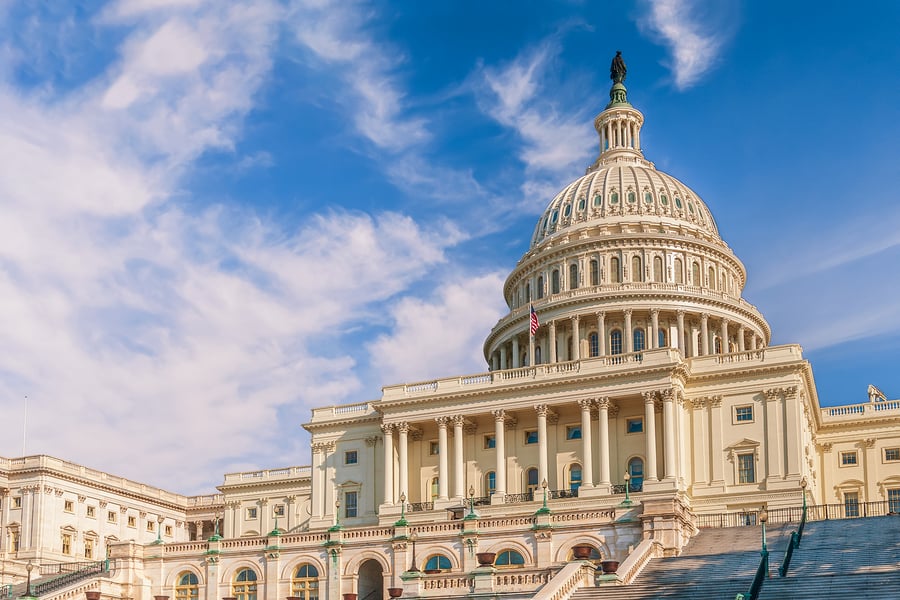EV Mandates Play To China’s Plans For Global Domination
Western carmakers in the United States and Europe have been warning about the threat of Chinese rivals upending their markets. This threat exists because the politicians in these countries have forced automakers to go electric before they were financially and technically ready to do so. President Biden, who has elevated China’s dominant role in the renewable and EV energy markets through his push to reach unrealistic climate goals, called Chinese-made electric vehicles a national security threat and announced that the Commerce Department would open an investigation to assess the impact. The fear is that low-cost electric vehicles made in China, or assembled by Chinese companies in Mexico, could flood the U.S. market. While Chinese carmakers are subject to a Trump-era 25 percent tariff plus a 2.5 percent import duty, assembling those vehicles in Mexico would result in only the 2.5 percent import duty or none at all. Chinese-made electric vehicles are much cheaper than U.S.-made electric vehicles because of low-cost labor and the benefit of availability to parts and minerals that China produces. For example, currently many U.S. manufacturers depend on China for EV battery technology.
THE THREAT IS LOOMING
In February 2024, Chinese auto giant Build Your Dreams (BYD) unveiled a fully electric crossover sport utility vehicle priced at a very low $14,000 to $20,000. The BYD Yuan Up (see below) will be powered by a single electric motor and will be available in three different versions, all of which will deliver 249 miles of range. BYD was able to produce the vehicle by keeping costs down and making many of its own components. This ultra-cheap electric vehicle could very well be the death of the U.S. auto industry. BYD beat Tesla in EV sales in the 4th quarter 2023 and poses a looming threat to EU and U.S. markets as it wants to extend its reach abroad. The company has been scouting locations in Mexico for a factory, from which it would consider exporting cars to the United States. Last year, China became the world’s biggest auto exporter, shipping an estimated 5.26 million domestically made vehicles overseas. Part of that growth came in the electric-vehicle market, where the country sold more than one million China-made electric vehicles overseas.
Tesla Chief Executive Elon Musk said Chinese car companies have already had much success outside of China and that they are now the “most competitive” globally. “If there are not trade barriers established, they will pretty much demolish most other car companies in the world.” Clearly, China protects its own companies. In 2021, China restricted the use of Tesla vehicles by military staff and employees of key state-owned companies, saying the car’s cameras record images constantly and obtain data, including when, how and where the vehicles are used. Tesla’s privacy protection policy, however, complies with Chinese laws and regulations and, according to Musk, the company attaches “great importance” to securing user information.
Biden’s investigation will also look at whether internet-enabled vehicles expose Americans’ data to Chinese authorities. “Connected vehicles from China could collect sensitive data about our citizens and our infrastructure and send this data back to the People’s Republic of China,” Biden said in a statement. “These vehicles could be remotely accessed or disabled.” The investigation could lead to restrictions on the use of certain parts in cars in the United States.
According to the Alliance for American Manufacturing, a lobbying group for carmakers, and the United Steelworkers union, cheap Chinese electric vehicles pose an “existential threat” as Chinese rivals are building manufacturing capacity in Mexico to get around the Trump levies. Chinese manufacturers, led by SAIC’s MG and BYD, are about 5 years ahead of the rest of the world in making electric vehicles, and can do it up to 30 percent cheaper, according to investment bank UBS. Interestingly, Biden’s perception of climate change as an “existential threat” is his justification for pushing car sales of electric vehicles to two-thirds of models sold by 2032.
European Carmakers Are Already Feeling the Pressure
While U.S. auto industry has been somewhat insulated by the Trump tariffs, Chinese cars are being sold in the European Union in increasing numbers. For instance, China is making inroads in Germany where EV imports from China have more than tripled in the first quarter 2023 as China controls the lower-priced segment of the world’s EV market. Since EU and US electric vehicles are so much more expensive than internal combustion engine (ICE) vehicles, lower-priced Chinese electric models provide individuals looking for personal transportation an electric option amid political opposition to ICE vehicles. EU politicians have decided that electric cars must account for just over 20 percent of the new car market this year, about 80 percent by 2030 and 100 percent by 2035, making China’s entrance with low-cost electric vehicles a market contender.
Last year China sold just over 350,000 sedans and SUVs in Europe, mainly electric ones. SAIC’s MG sold 239,000 vehicles, mainly electric, and BYD sold 16,000. With Hungary seemingly set as its location for EV production for the European market, BYD appears determined to break through the car market currently occupied by legacy EU automakers like Mercedes-Benz and Volkswagen while remaining price competitive with its most prominent rival, Tesla.
The European Commission started an investigation into Chinese imports last year, but some manufacturers warn that it may not be enough. According to Luca de Meo, C.E.O. of Renault, governments may need to create a state-backed, pan-continental entity like Airbus to put the brakes on the Chinese threat. Airbus Industrie was set up in 1970 to help Europe compete with airliner market leader Boeing Co. of the United States. It consists of the German-French-Spanish-owned European Aeronautic Defense and Space company with 80 percent interest and Britain’s BAE Systems with 20 percent interest. However, there are probably too many barriers for this to be the solution to protect EU legacy automakers against Chinese competitors.
Biden’s Tailpipe Emission Rule
Even with this existential threat, Biden’s EPA is moving ahead with its tailpipe emissions rule, which is a de facto ban on new gasoline cars. Last year the EPA unveiled proposed emission standards for light-, medium- and heavy-duty vehicles starting with the model year 2027 to accelerate the transition to electric vehicles. Due to criticism from the United Auto Workers Union, EPA backed off on the rate of EV sales required through 2030, but retained the 2032 target, requiring 67 percent of new light-duty vehicle sales and 46 percent of new medium-duty vehicle sales to be electric. According to the American Petroleum Institute, “The mandate would restrict Americans’ freedom to drive how they choose and restrict continued innovation in the automotive sector to one technology primarily sourced from China”.
Biden’s National Highway Traffic Safety Administration (NHTSA) has proposed a new corporate average fuel efficiency standard that has a similar EV sales outcome to that of EPA’s tailpipe emissions rule in 2032. NHTSA is proposing to raise the fuel economy standards for passenger cars at a rate of two percent a year and light trucks at a rate of four percent per year for models with year designations that fall under 2027–31. For heavy-duty pickup trucks and vans with model years 2030–35, the planned increase is 10 percent per year.
Conclusion
Biden’s climate policies are pushing the U.S. manufacturing industries in competition with China where its manufacturers have had years to gear up amid favorable government subsidies. China moved to EV manufacture because of its dependence on foreign oil which made it the largest importer, and because of its control of the supply chains for EV essential parts and minerals.
Because of the speed that President Biden wants to implement his climate agenda, American industry is having a hard time being competitive with Chinese firms. While a Trump-era tariff is currently keeping Chinese-made electric vehicles out of the country, opening a factory in Mexico could mean that low-cost Chinese-made electric vehicles would flood the U.S. car market. And, with Biden’s regulations being a de facto ban on gasoline vehicles, where the United States has a step up from China, it is inevitable that the Chinese will have a major presence in the United States and that taxpayers will again have to rescue the U.S. automotive industry. All this could be avoided with the right policy changes by the Biden administration.
*This article was adapted from content originally published by the Institute for Energy Research.



